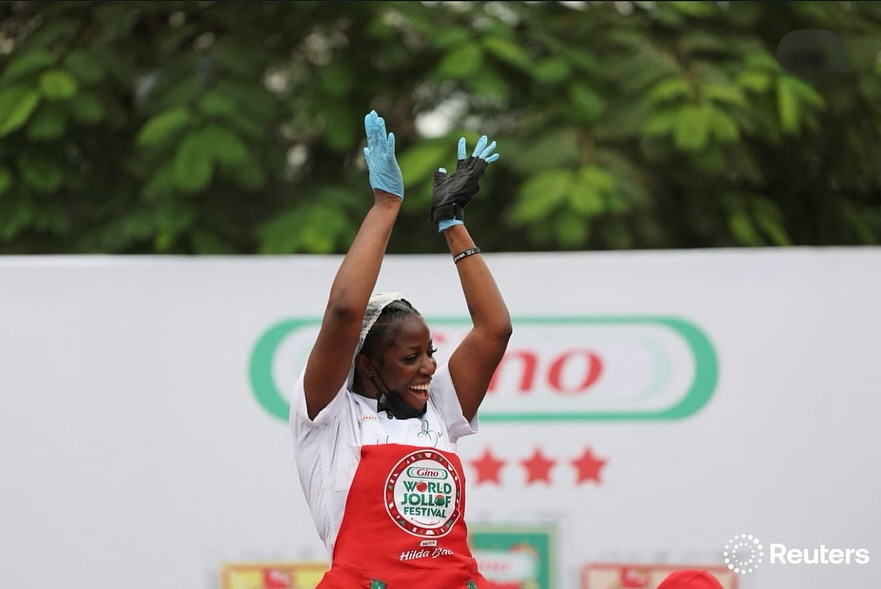“I Am My Mother’s Daughter” — Resilience After a Setback
When Nigerian chef Hilda Effiong Bassey, popularly known as Hilda Baci, recently attempted to cook the largest pot of jollof rice in Lagos, expectations soared. The build-up was massive—over 20,000 people registered to attend, social media platforms streamed the event live, and hashtags like #GoHilda and #HistoryMade began trending.
But despite the excitement, the highly anticipated event faced unexpected hurdles. Technical and logistical issues meant the record-breaking dream couldn’t be validated by Guinness World Records, and the attempt was eventually cancelled.
For many, such a public setback might have been crushing. But Hilda’s response was anything but defeatist. Speaking after the cancellation, she declared:
“I am my mother’s daughter.”
The statement carried weight. It wasn’t just about lineage—it was about resilience. It signaled her refusal to be defined by one outcome and her insistence on carrying forward the strength she had inherited. That moment reminded Nigerians, and indeed West Africans, why Hilda had already become a cultural icon.
The First Attempt That Changed Everything
Hilda had already written her name into global history before the jollof rice bid.
In May 2023, she embarked on what seemed like an impossible mission: the longest cooking marathon by an individual. For days, she stood by her pots and pans, producing dish after dish of Nigerian delicacies. When she finally put down her utensils, she had clocked an astounding 93 hours and 11 minutes, a record that Guinness World Records officially confirmed.
The achievement was bigger than just personal glory. It symbolized a turning point for African representation on the global stage.

Her cookathon accomplished three major things:
- Visibility: Millions tuned in from across the world, transforming her attempt into a trending topic and cultural spectacle.
- Representation: Nigerian dishes like jollof rice, egusi, and pepper soup were broadcast worldwide, rebranding local food as global cuisine.
- Inspiration: Young Africans saw proof that world-class achievements were not reserved for others—it was something they could claim too.
Hilda Baci’s cookathon wasn’t just a Guinness win—it was a cultural milestone. From that moment, she became more than a record holder. She became a pace setter.
The Hilda Baci Effect: Inspiring Others Across West Africa
Hilda’s groundbreaking achievement sparked a chain reaction. Across Nigeria and Ghana especially, her cookathon ignited a wave of world record fever.
Some of the most notable examples include:
- Afua Asantewaa Aduonum (Ghana): Attempted the longest singing marathon, dedicating her endurance to women’s empowerment and directly citing Hilda as her inspiration.

What’s striking is that these weren’t just isolated stunts. They became community-driven events, with entire cities rallying behind individuals daring to break global barriers. This was the Hilda Baci effect—she had normalized ambition at a Guinness World Record scale.
Why She’s a True Pace Setter
Being a pace setter isn’t about one record. It’s about setting an example, shifting the cultural mindset, and paving the way for others to dream bigger.
Hilda embodies this in several ways:
- She reshaped the narrative of African youth, showing they can compete on a global stage with confidence and creativity.
- She turned endurance into celebration, transforming cookathons into festivals where food, music, and community came together.
- She inspired beyond her field, showing singers, athletes, and performers that world-class ambition isn’t limited by profession.
- Even though her jollof rice attempt didn’t secure Guinness validation, the excitement it generated, the conversations it sparked, and the boldness it represented all confirm her status as a trailblazer.
In other words, the record may have been cancelled, but her impact is permanent.




